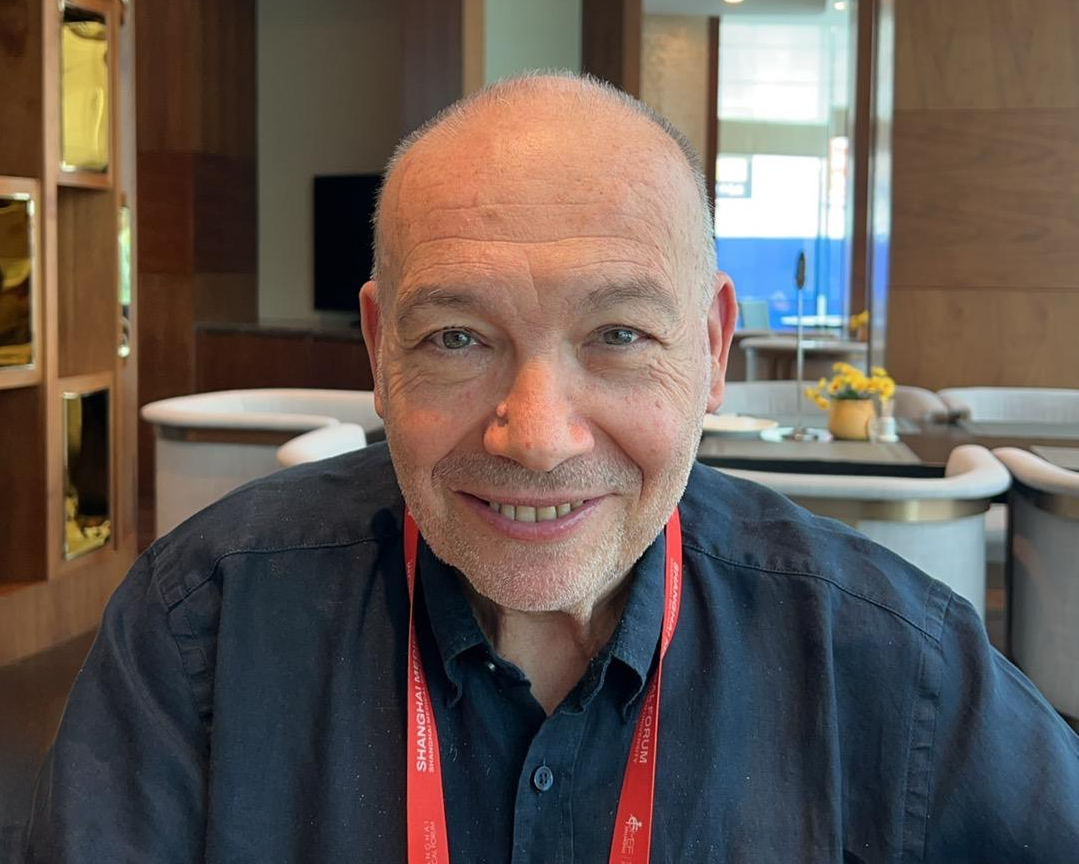News / Interview | Altamiro da Costa Pereira
Director of the Faculty of Medicine of the University of Porto (FMUP).

The director of the Faculty of Medicine of the University of Porto (FMUP), Altamiro da Costa Pereira, is a pivotal figure in the creation of RISE-Health, the largest research unit in the country, and has been a reference in the integration of scientific research, technological innovation, and medical training.
With a degree in Medicine from FMUP, he began his academic career in 1985 in the field of Epidemiology and Public Health, while also completing his residency in Paediatrics at São João Hospital. He completed postgraduate studies at international institutions such as Johns Hopkins University (USA), McGill University (Canada), and Nijmegen University (Netherlands), and obtained his doctorate from the University of Dundee (UK) in 1993, passing his aggregation exams at FMUP in 1999.
With a career dedicated to improving health services and developing research methodologies in medicine, he is the author of hundreds of scientific publications and has collaborated with numerous national and international institutions. His career combines a strong scientific vocation with an ongoing commitment to the modernisation of medical education and research in Portugal.
It wasn’t something I planned. I had a hard time figuring out what I wanted to do. I chose Medicine because I thought it was an interesting field with many career opportunities. I was very undecided between the scientific field and the artistic field, particularly in relation to architecture. However, I always considered that what is important is not necessarily what we choose, but what we do with our choices. Therefore, the important thing is to do something, and to do it with pleasure, with enthusiasm, to enjoy ourselves, to find what we do interesting.
I began my career at the Faculty of Medicine of the University of Porto (FMUP) in the field of Pharmacology, under the guidance of Professor Walter Oswald, and subsequently transitioned to Hygiene and Social Medicine, later known as Epidemiology and Public Health. While I was completing my internship in Paediatrics and working on a European project in Perinatal Epidemiology, I went to Scotland to pursue a PhD in an area that interested me: the Epidemiology of asthma. However, what really interested me in the PhD was learning methods of epidemiological and clinical research.
When I returned, I joined and went on to head the Department of Biomathematics, an area that—at the time—was not very developed, but which was extremely important to me and which, together with the areas of Biostatistics, Medical Informatics, Clinical and Epidemiological Research Methods, gave rise to the current MEDCIDS—Department of Community Medicine, Health Information, and Decision Making.
Research came into my life when I was a boy. A boy, because, like many children, I often asked “why?” Research is a natural thing for me. For example, I am very interested in art and conduct extensive research on art, artistic objects, and their historical and cultural contexts. In my view, we must seek answers ourselves, but often when we investigate, we find more questions instead of answers.
Recently, I was very pleased that several of the teachers/researchers whom I supervised and helped train were included in the latest update of the World’s Top 2% Scientists list. This is something that gives me great pleasure, since my path was not a decision to pursue a research career myself, but rather to create or help create conditions for others to pursue a research career.
The merger of these research units, namely CINTESIS and UnIC, gave rise to something I had been pursuing since I was deputy director of FMUP in the early 2000s. I wanted the Faculty of Medicine of the University of Porto to have a research unit that could balance and complement what was already being done in other entities in Porto and Portugal, but which were focused on the more basic areas of biomedicine. Today, it is recognised that there are other areas that are essential to healthcare, such as clinical research, information systems, and health management.
The creation of RISE-Health makes strategic sense for FMUP, the University of Porto, academia in general, and the ULS in the north of the country, while also opening doors to many new researchers, especially doctoral students. It is essential that we have a health research ecosystem capable of flourishing and creating new ideas and, above all, new paths.
I hope it will have a significant impact, but it all depends on how the funding is used. Given RISE’s geographical coverage, it could be a great opportunity to build bridges between universities, especially in the north of the country, but it will also raise problems and challenges. For example, we are currently in the process of acquiring an MRI scanner, but we also need to know where to put it to ensure that all RISE-Health researchers have access to it.
I hope it will have a major impact. Many of our researchers have a connection to ULS São João, which could obviously have a positive impact, as research, particularly clinical research, has a significant impact on clinical care. The best care providers are always those who also do the best research.
If we can boost research and foster a sense of belonging and interaction among researchers from all the institutions that comprise this research unit, collaborating within a vast ecosystem and building a collective brain, I am confident that we will succeed, achieving results that would not otherwise be possible.
The fact that RISE-Health brings together higher education institutions, medical schools, nursing schools, etc., can bring these entities closer together and connect doctors, nurses, biologists, and engineers, improving less developed or more neglected areas so that we can compete for more national and foreign funding and achieve greater gains in health.